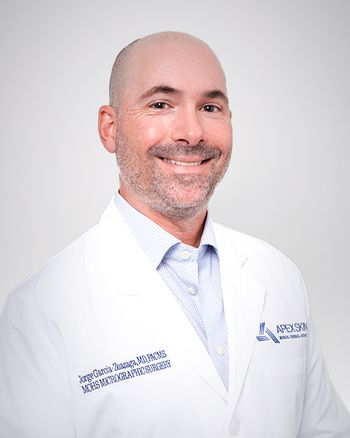
How does your practice rate on trust?
The baseline of the average person in the medical industry is someone who values and wants to be trustworthy. The environment in the office needs to be supportive of that. But how? This expert offers tips to improve employee trust in your practice.
Trust might not be a word you typically consider when thinking about your dermatology practice, but it is an imperative part of all organizations, says Mike Goossen, CPA and CEO of Columns 4 Success.
“When high levels of trust are present throughout an organization, high performance is possible,” Goossen says. “Trusting employees feel their organization, leaders and managers have their interests in mind when making decisions.”
According to the 2019 Edelman Trust Barometer, an international communications marketing firm, trust has changed profoundly in the past year with “my employer” emerging - perhaps surprisingly - as the most trusted institution.
“People have shifted their trust to the relationships within their control, most notably their employers,” the analysis notes.
“Globally, 75% of people trust ‘my employer’ to do what is right, significantly more than [non-governmental organizations or] NGOs (57%), business (56%) and media (47%).”
In its trust analysis, Edelman reports that “employees are ready and willing to trust their employers, but the trust must be earned through more than ‘business as usual.’"
“The rewards of meeting these [employees’] expectations and building trust are great,” Edelman says.
THE TRUST IMPERATIVE
Trust is critical to organizational success, Mr. Goossen says. When trust is low in an organization, productivity is lower, often with conflict. A high-trust organization makes employees feel they’re supported and taken care of, he says.
“A lack of it means there’s very little opportunity to reach whatever goals that organization has, no matter the size,” says. “It’s the difference between a culture of positivity and a culture of fear and trouble.”
TRUST IN THE BUSINESS CLIMATE
High-performance organizations understand the vital role trust plays within the organization, but maybe you wonder how trust factors into the success of your busy dermatology practice?
Mr. Goossen advises you to first consider business challenges that include:
- Environmental demands such as competition, globalization and regulation
- Customer demands for higher quality, lower costs and better delivery
- Financial demands for growth, increased profits and ROI and
- Employee demands for growth opportunities, sense of “partnership” and job challenges.
In the cycle of trust, employees engage in dialogue, see othothers as allies, commit to win-win outcomes and are trustworthy. Characteristics of the cycle of mistrust are just the opposite, he says. Mr. Goossen urges us to consider our interdependence and that:
- The work of an organization is accomplished through people.
- People are interdependent.
- Interdependence requires collaboration.
- Collaboration is built on a foundation of trust.
The trust model also incorporates three main principles, he says. First is integrity, when a person acts from a set of guiding principles. Second is competence, when someone understands and can perform the technical requirements of their role. Finally, compassion means they understand the point of view of others.
TRUST IN PRACTICE
So now you’ve decided it’s time to build or improve trust. To do that, you need to first provide visionary leadership, because that demonstrates integrity, he says. Consider the quote from John Scully, former CEO of Pepsi and Apple, who said, “The future belongs to those who see possibilities before they become obvious.”
Next, provide continuous learning, because competency is enhanced when you provide leadership by purposefully developing yourself and those around you, says Mr. Goossen. Don’t just say it, but do it when you do things like establish a budget for development organization-wide. You and your colleagues attend professional conferences. You establish a process of sharing what people learn from attending conferences, training seminars and workshops. And this is the clincher: You include a personal development plan as a requirement of employment, so employees keep going and growing.
Mr. Goossen says there’s more. You must also build relationships with doctors, patients and suppliers, but most importantly with your team. To do this, think like a neuroscientist for a moment, understanding that human response modes are either analytical or logical, or automatic and emotional.
“A strong body of research tells us most people all the time and all people most of the time are in the non-thinking automatic mode, yet most presentations are geared to the heavy-thinking analytical mode,” says Mr. Goossen. “To drill down to the basics, remember that people are, you and I are, emotional beings who think, not thinking beings who feel.”
THEY’RE JUST YOUR TYPE
People employed in a medical office such as your dermatology practice are there, in part, because of their personality profile, Mr. Goossen says.
“You probably work there because you’re a caring, supportive and helpful person. The baseline of the average person in the medical industry is someone who values and wants to be trustworthy. The environment in the office needs to be supportive of that.”
If you identify a potential breach of trust, it’s important to nip it in the bud, and you do that because you’re aware of what transpires among employees - even the smallest things, he says.
Make it clear that discussions about impending problems are welcome at weekly staff meetings. Ask everyone, “Is there any issue that’s occurred during the last 24 hours that has caused a problem? If so, let’s talk about it.”
Even a comment or facial expression to an employee from an employee could be seen as untrustworthy and start a downward spiral, says Mr. Goossen. Remember that a trustworthy person does not view others as competition, but engages in productive dialogue in which things are clarified, and both sides understand what’s happening.
The trust imperative starts at the top and it does require effort. Trust doesn’t just happen all by itself, Mr. Goossen says.
As Ernest Hemingway wrote, “The best way to find out if you can trust somebody is to trust them."
Newsletter
Like what you’re reading? Subscribe to Dermatology Times for weekly updates on therapies, innovations, and real-world practice tips.









